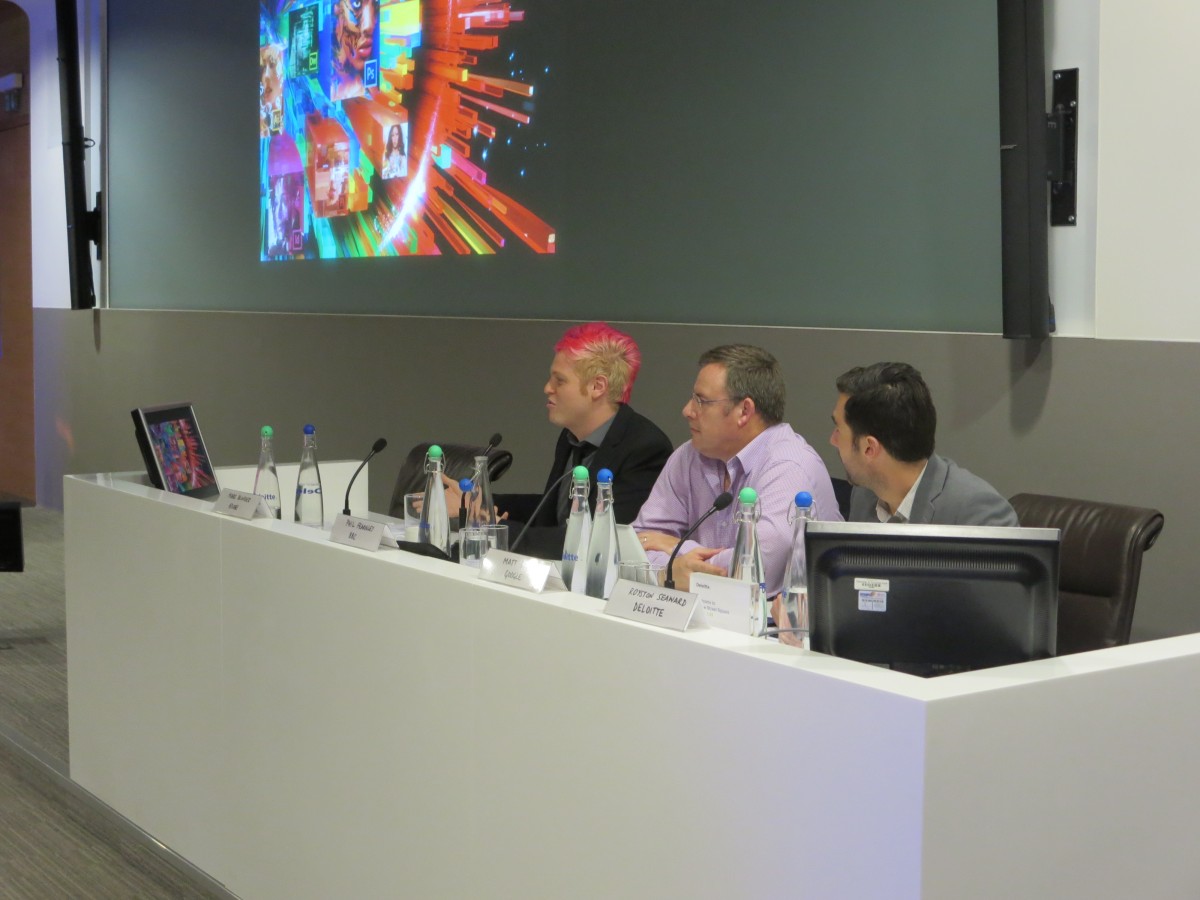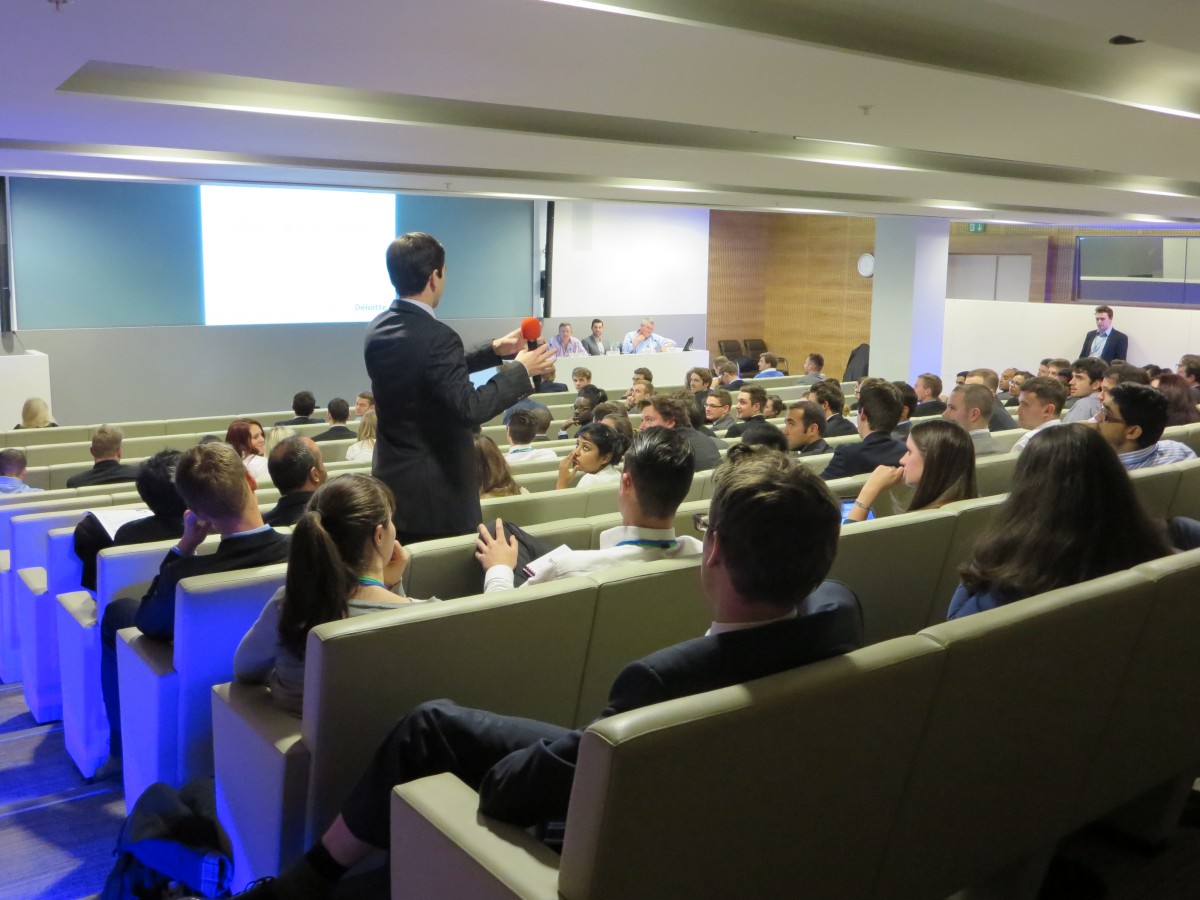
Surrounded by phones, tablets and laptops, we all know we’re living through the technological revolution, but what does the digital age actually mean? Digital experts from some of the industry’s leading organisations spoke at November’s event to give an insight into the world of technology at the top. As a consultant from an organisation with a strong and well-respected Digital arm, I was keen to see what they viewed as the current trends and hot topics.
Marc Blinder, EMEA Director of Social Media Strategy at Adobe, shared his thoughts on the significance of the digital age to Adobe. One of his most interesting observations is that we are currently embroiled in a dichotomy between different types of digital organisations: those that own the data and sell it back to us for our use (e.g., Facebook, Google), and those that allow us to own our own data and exploit it freely (e.g., SalesForce, IBM, Adobe). This prompted a complex question during the Q&A session on the future of data ownership – who owns your data that you make public? You? The organisation to whom you gave it? No-one? Everyone? Certainly something to think about next time you comment on Twitter or update your Facebook profile picture.
Phil Fearnley, General Manager of Future Media at the BBC, gave some fascinating insights into the way that BBC consumers have dramatically changed their consumption habits over the past few years. For example, the BBC’s coverage of the London Olympics provided such a high quality of digital offerings that since then it has become normal for people to consume information on different devices at different times of the day. The BBC found that access to its services via tablet saw a spike of 128% on Christmas Day 2012 and has continued to grow exponentially since then. Phil also explained how the BBC had changed its perception of who its competition is in recent years. Where it competed with the likes of ITV and Sky, at present they consider companies such as Netflix and YouTube to be their competition, deftly highlighting the consumer behavioural changes that have taken place in recent years. Phil also asked if we had come to the end of homepage bookmarking, explaining that people are tending to access websites via the “front door” (i.e. homepage) less and less; for him, every window is a front door and they now see consumers visiting pages on the BBC website by following links on various different social media sites.
Despite all the changes in recent years, Matt Bush, Head of Performance at Google, argued that digital is still in its infancy and companies are all trying to find the next big thing. For him, mobile internet is the future. Nowhere is this better exemplified than in sub-Saharan Africa where people’s first experience of internet is typically via a mobile device, rather than a traditional desktop computer with broadband (or worse, dial-up internet – remember that?). As the smartphone and 4G become more and more prevalent, we will continue to see rapid change in digital behaviour. Matt spoke passionately about Google Glass and Google Chauffer (cars that can drive themselves safely) and suggested that the future might see internet access without the need for technology. Matt asserted that every business is affected by the internet, and any organisations that did not embrace this would be left behind – who wants to buy tickets or products from an organisation that doesn’t have an enjoyable and well-functioning mobile offering? Matt finished his presentation by encouraging everyone to learn how to code – even if it just means attending a one day course. Understanding how apps are written can be hugely beneficial, and this technology will continue to grow and dominate our day–to-day behaviour.
Royston Seward, Partner at Deloitte Digital spoke about the two biggest changes in digital offerings since the mid-1990s: Content and Connectivity. Deloitte has identified the potential of digital in Consulting and has spent the past 18 months trying to grow its capability in this area. Royston explained that all clients want digital offerings, although some clients need more convincing than others. He gave an example of Deloitte working with a retail client who was unsure whether to spend some of their budget on a large-scale digital refresh project, or spending the same amount of money refurbishing the lifts in their flagship stores! Royston explained how some clients (or some stakeholders at client organisations) do not yet fully understand the tangible benefits of the digital age, and learning how to articulate these benefits is an important skill that all attendees should try to master. He also echoed Matt’s advice about learning how to code, encouraging all attendees to “get your hands dirty!”.

A lively Q&A session allowed many of the main themes of the evening to be explored. I spent the following few days thinking a little more carefully each time I went on Facebook, glancing enviously at my technical colleagues as they furiously coded away on their respective projects, and re-assessed my bookmarked pages on my laptop. We do truly live in a digital age…what does that mean for you and your organisation?
Key takeaways
- Digital is everywhere – are you, your company and your clients keeping up?
- Traditional habits of digital consumption have changed quickly and will continue to change
- Coding is as important as reading – have you ever tried to code? If not, why not?
- Are you able to articulate the value of digital? Some people need convincing
